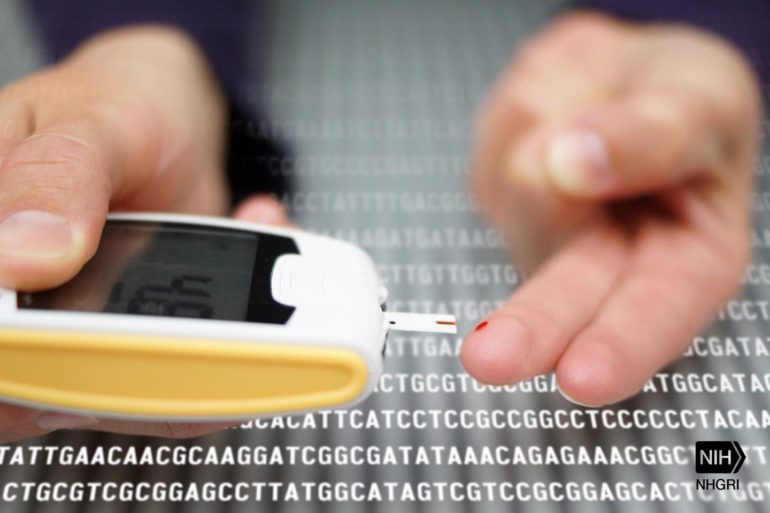Results from a new trial published by a team led by researchers at Fred Hutchinson Cancer Research Center suggests lower dairy intake may be beneficial for people with metabolic syndrome. In a new study published in the American Journal of Clinical Nutrition, Dr. Mario Kratz, an associate professor in Fred Hutch’s Public Health Sciences Division, led a team that looked at dairy’s impact on regulating blood sugar levels in people with metabolic syndrome.
This project was motivated by previous observational studies suggesting people who ate the most yogurt or full-fat dairy foods tended to have a lower risk of Type 2 diabetes. Findings from the new Fred Hutch-led trial showed that the body’s ability to regulate blood sugar levels was not directly affected by whether participants consumed dairy foods. However, consumption of either low-fat or full-fat milk, yogurt, and cheese reduced insulin sensitivity.
Metabolic syndrome is a group of risk factors that raises risk of heart disease, diabetes, stroke and other health problems. Insulin sensitivity refers to how the body’s cells respond to insulin. High insulin sensitivity allows the cells of the body to use blood sugar more effectively, reducing blood sugar.
The study involved 72 volunteer men and women who had the metabolic syndrome. Using a parallel-design, randomized, controlled trial, the research team randomized the volunteers into three groups over 12 weeks:
A limited dairy diet, consisting of no dairy foods other than—at most—three servings of skim milk per weekA low-fat dairy diet, consisting of more than three servings of skim milk, nonfat yogurt and low-fat cheese per dayA full-fat dairy diet, consisting of more than three servings of whole milk, full-fat yogurt and full-fat cheese per day
After the 12 weeks, Kratz and his research team measured a variety of biomarkers, including blood sugar throughout a glucose tolerance test, systemic inflammation and liver-fat content. They found that blood sugar regulation was not directly affected by whether participants consumed dairy foods. However, participants on the full-fat dairy diet gained a modest amount of weight, and participants on both low-fat and full-fat dairy diets saw a decrease in insulin sensitivity. A reduction in insulin sensitivity could lead to an increased risk of Type 2 diabetes in the long term; however, because blood sugar levels were not affected by dairy foods, the long-term impact of reduced insulin sensitivity in people eating a diet rich in dairy on Type 2 diabetes risk is unclear.
“Unlike previous observational studies which suggested a beneficial relationship between fermented dairy foods such as yogurt, as well as high-fat dairy foods, and better metabolic health, our rigorous randomized, controlled trial could not confirm that eating more dairy foods lowers people’s blood sugar levels,” said Kratz. “While more work needs to be done examining the impact of diets rich in dairy in healthy populations, the finding of reduced insulin sensitivity that resulted from higher dairy intake may be concerning for people with metabolic syndrome and similar conditions such as prediabetes or Type 2 diabetes.”
Kratz also feels strongly that a single study should always be interpreted with caution. First, dairy-rich diets had not reduced insulin sensitivity in all previous trials. Second, it is important to consider that even though the dairy-rich diets reduced insulin sensitivity, this did not lead to higher blood sugar levels in these participants. Because blood sugar is the clinical endpoint the research team cared more about (and it was the primary endpoint in this trial), these results’ interpretation is not straightforward. And, lastly, when evaluating the overall health effects of a food group such as dairy, the food’s impact on the regulation of blood sugar levels is just one of many considerations.
Milk consumption linked to lower risk of diabetes and hypertension, study shows
More information:
Kelsey A Schmidt et al, The impact of diets rich in low-fat or full-fat dairy on glucose tolerance and its determinants: a randomized controlled trial, The American Journal of Clinical Nutrition (2020). DOI: 10.1093/ajcn/nqaa301
Provided by
Fred Hutchinson Cancer Research Center
Citation:
Trial shows no benefits of dairy foods for blood sugar regulation (2020, November 16)
retrieved 16 November 2020
from https://medicalxpress.com/news/2020-11-trial-benefits-dairy-foods-blood.html
This document is subject to copyright. Apart from any fair dealing for the purpose of private study or research, no
part may be reproduced without the written permission. The content is provided for information purposes only.


